

E-Books → Cognition and Practice Li Zehou's Philosophical Aesthetics
Published by: voska89 on 24-11-2022, 08:19 |  0
0
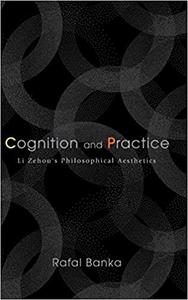
Rafal Banka, "Cognition and Practice: Li Zehou's Philosophical Aesthetics "
English | ISBN: 1438489234 | 2022 | 230 pages | PDF | 2 MB
This is the first book on the role of cognition in the aesthetic theory of Li Zehou (1930-2021), one of China's most important and influential contemporary philosophers. The cognitive dimension and its integration with practice is discussed by examining one of Li's pivotal concepts: "subjectality," a human subject shaped by the world in which they live, including beauty and aesthetic experience. Li's theory is also contextualized in the threefold inspiration coming from Confucian, Kantian, and Marxist philosophies, which differently conceptualize the aesthetic and cognitive dimensions in humans. By referring to different aesthetic theories and interdisciplinary approaches to cognition, the book aims to show how Li's cognitively oriented project can contribute to contemporary research into aesthetics. Although primarily written for philosophers working in aesthetics, Chinese, and comparative philosophy, the book is also addressed to anyone interested in contemporary Chinese thought.
E-Books → Body Cognition - The Method Movement, Health, Treatment
Published by: voska89 on 18-11-2022, 04:43 |  0
0
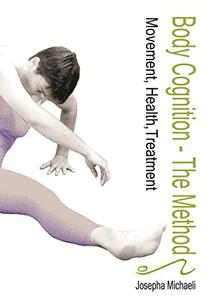
Josepha Michaeli, "Body Cognition - The Method: Movement, Health, Treatment"
English | 2015 | ISBN: 1508830150 | EPUB | pages: 464 | 1.3 mb
Thousands of people have experienced it since the development of "Body Cognition" in the 1960s and 1970s.
E-Books → The Tinkering Mind Agency, Cognition, and the Extended Mind
Published by: voska89 on 12-10-2022, 00:39 |  0
0
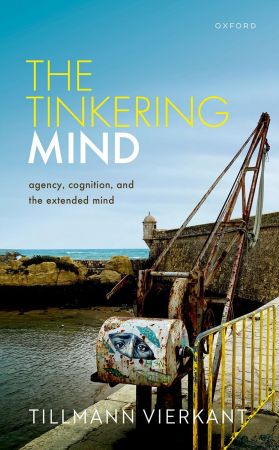
English | 2022 | ISBN: 0192894269 | 205 pages | True PDF EPUB | 6.78 MB
Epistemic agency is a crucial concept in many different areas of philosophy and the cognitive sciences. It is crucial in dual process theories of cognition as well as theories of metacognition and mindreading, self-control, and moral agency. But what is epistemic agency? The Tinkering Mind argues that epistemic agency has two distinct and incompatible definitions. It can be simply understood as intentional mental action, or as a distinct non-voluntary form
E-Books → Cognition 101 How We Acquire Knowledge, Gain Understanding, and Make Decisions [Audiobook]
Published by: voska89 on 11-10-2022, 19:26 |  0
0
![Cognition 101 How We Acquire Knowledge, Gain Understanding, and Make Decisions [Audiobook] Cognition 101 How We Acquire Knowledge, Gain Understanding, and Make Decisions [Audiobook]](https://i120.fastpic.org/big/2022/1011/b3/496b917f0f17914a4889dd535dff50b3.jpeg)
English | ASIN: B08BDMYK4V | 2020 | 4 hours and 51 minutes | MP3 | M4B | 134 MB
Learn practical, easy-to-apply tips to improve your thinking, reasoning, and decision making with an NIH-funded cognitive science professor and textbook author. Cognitive psychology - the science of how we acquire, process, store, and use information - is essential to understanding the human experience. Yet, cognition is such an automatic part of our daily functioning that we rarely take time to think about how it works or how we might improve it. Professor Kathleen Marie Galotti will take you on a tour of higher-order cognitive processes such as problem-solving, creativity, reasoning, and decision making - in other words, how we put information to use.
E-Books → Dance Data, Cognition, and Multimodal Communication
Published by: voska89 on 25-08-2022, 02:54 |  0
0
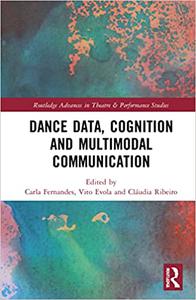
Carla Fernandes, "Dance Data, Cognition, and Multimodal Communication "
English | ISBN: 0367617455 | 2022 | 456 pages | PDF | 27 MB
Dance Data, Cognition, and Multimodal Communication is the result of a collaborative and transdisciplinary effort towards a first definition of "dance data", with its complexities and contradictions, in a time where cognitive science is growing in parallel to the need of a renewed awareness of the body's agency in our manyfold interactions with the world.
E-Books → On Anger Race, Cognition, Narrative
Published by: voska89 on 15-08-2022, 06:00 |  0
0
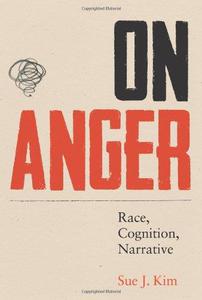
On Anger: Race, Cognition, Narrative By Sue J. Kim
2013 | 227 Pages | ISBN: 0292748418 | PDF | 3 MB
Anger is an emotion that affects everyone regardless of culture, class, race, or gender-but at the same time, being angry always results from the circumstances in which people find themselves. In On Anger, Sue J. Kim opens a stimulating dialogue between cognitive studies and cultural studies to argue that anger is always socially and historically constructed and complexly ideological, and that the predominant individualistic conceptions of anger are insufficient to explain its collective, structural, and historical nature.On Anger examines the dynamics of racial anger in global late capitalism, bringing into conversation work on political anger in ethnic, postcolonial, and cultural studies with recent studies on emotion in cognitive studies. Kim uses a variety of literary and media texts to show how narratives serve as a means of reflecting on experiences of anger and also how we think about anger-its triggers, its deeper causes, its wrongness or rightness. The narratives she studies include the film Crash, Maxine Hong Kingston's The Woman Warrior, Tsitsi Dangarembga's Nervous Conditions and The Book of Not, Ngugi wa Thiong'o's Devil on the Cross and Wizard of the Crow, and the HBO series The Wire. Kim concludes by distinguishing frustration and outrage from anger through a consideration of Stéphane Hessel's call to arms, Indignez-vous! One of the few works that focuses on both anger and race, On Anger demonstrates that race-including whiteness-is central to our conceptions and experiences of anger.
E-Books → Getting the Blues Vision and Cognition in the Middle Ages (Medieval Interventions)
Published by: voska89 on 10-08-2022, 21:08 |  0
0
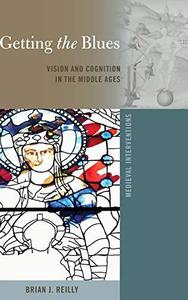
Getting the Blues: Vision and Cognition in the Middle Ages (Medieval Interventions) By Brian J. Reilly
2018 | 252 Pages | ISBN: 1433157527 | PDF | 8 MB
Getting the Blues: Vision and Cognition in the Middle Ages is an interdisciplinary study of medieval color. By integrating scientific and literary approaches, it revises our current understanding of how people in medieval Europe experienced color and what it meant to them. This book insists that the past perception of the world can be recovered by joining timeless universal constraints on human experience (discovered by science) to the unique cultural expressions of that experience (revealed by literature).The Middle Ages may evoke images of the multicolored stained glass of gothic cathedrals, the motley garb of minstrels, or the brilliant illuminations of manuscripts, yet such color often goes unnoticed in scholarly accounts of medieval literature. Getting the Blues restores some of the most important literary works of the Middle Ages to their full living color. Particular consideration is given to the twelfth-century Arthurian romances by Chrétien de Troyes and the thirteenth-century Lancelot-Grail Cycle.Getting the Blues engages debates within the humanities and the sciences over universalist and relativist approaches to how humans see and name color. Scholars in the humanities often insist that color is a strictly cultural phenomenon, eschewing as irrelevant to the Middle Ages recent developments in cognitive science that show universal constraints on how people in all cultures see and name color. This book contributes to the recent cognitive turn in the humanities and sheds new light on some of the most frequent and meaningful cultural experiences in the Middle Ages: the perception, use, and naming of color.
E-Books → Handbook of Applied Cognition, Second Edition
Published by: voska89 on 29-07-2022, 20:34 |  0
0

Handbook of Applied Cognition, Second Edition By
2007 | 892 Pages | ISBN: 0470015349 | PDF | 10 MB
Written by a team of leading international researchers under the guidance of Frank Durso, the second edition of the Handbook of Applied Cognition brings together the latest research into this challenging and important field, and is presented across thirty stimulating and accessible chapters. Stewarded by experiences editors from around the globe, the handbook has been fully updated with eleven new chapters covering materials that focus on the topics critical to understanding human mental functions in complex environments. It is an essential single-source reference for researchers, cognitive engineers and applied cognitive psychologists, as well as advanced students in the flourishing field of applied cognition.Content: Chapter 1 Applied Cognitive Psychology in the Context of Everyday Living (pages 1-27): Wendy A. Rogers, Richard Pak and Arthur D. FiskChapter 2 Attention (pages 29-54): David L. Strayer and Frank A. DrewsChapter 3 Working Memory (pages 55-82): Aysecan Boduroglu, Meredith Minear and Priti ShahChapter 4 Knowledge and Expertise (pages 83-109): Stephan Lewandowsky, Daniel Little and Michael L. KalishChapter 5 Episodic Memory (pages 111-136): Scott D. Gronlund, Curt A. Carlson and Debra TowerChapter 6 Metamemory (pages 137-161): John Dunlosky, Michael J. Serra and Julie M. C. BakerChapter 7 Comprehension and Situation Awareness (pages 163-193): Francis T. Durso, Katherine A. Rawson and Sara GirottoChapter 8 Decision?Making (pages 195-217): Winston R. Sieck and Gary KleinChapter 9 Human Error: Trick or Treat? (pages 219-238): Erik HollnagelChapter 10 Team Cognition (pages 239-268): Nancy J. Cooke, Jamie C. Gorman and Jennifer L. WinnerChapter 11 Industrial Systems (pages 269-305): Neville MorayChapter 12 Patient Safety in Health Care (pages 307-331): Vimla L. Patel and Jiajie ZhangChapter 13 Skill in Sport (pages 333-359): Bruce Abernethy, Jonathan P. Maxwell, Robin C. Jackson and Richard S. W. MastersChapter 14 Aviation (pages 361-389): Christopher WickensChapter 15 Driving (pages 391-414): Geoffrey Underwood, David Crundall and Peter ChapmanChapter 16 Automated and Interactive Real?Time Systems (pages 415-441): Bernd Lorenz and Raja ParasuramanChapter 17 Cognitive Models of Human-Information Interaction (pages 443-470): Peter PirolliChapter 18 Personal Information Management (pages 471-495): William Jones and Brian H. RossChapter 19 Computer?Supported Cooperative Work (pages 497-526): Gary M. Olson and Judith S. OlsonChapter 20 Online Courses (pages 527-552): Ruth H. Maki and William S. MakiChapter 21 Instruction (pages 553-583): Lindsey E. Richland, Marcia C. Linn and Robert A. BjorkChapter 22 Cognitive Rehabilitation (pages 585-604): Barbara A. WilsonChapter 23 Personnel Selection and Testing (pages 605-627): Margaret E. Beier and Phillip L. AckermanChapter 24 Mental Illness and Mental Health (pages 629-658): Megan E. Hughes, Catherine Panzarella, Lauren B. Alloy and Lyn Y. AbramsonChapter 25 Media (pages 659-682): Richard Jackson Harris, Elizabeth T. Cady and Christopher P. BarlettChapter 26 Consumer Psychology (pages 683-711): Joseph W. Alba and J. Wesley HutchinsonChapter 27 Protection of the Environment (pages 713-738): Raymond S. NickersonChapter 28 Juror Decision?Making (pages 739-761): Ryan J. Winter and Edith GreeneChapter 29 Eyewitness Testimony (pages 763-786): Daniel B. Wright and Graham M. DaviesChapter 30 False Memories (pages 787-812): Giuliana Mazzoni and Alan Scoboria
E-Books → Lost in Cognition Psychoanalysis and the Cognitive Sciences
Published by: voska89 on 22-07-2022, 08:55 |  0
0
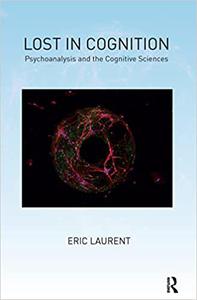
Éric Laurent, A. R. Price, "Lost in Cognition: Psychoanalysis and the Cognitive Sciences"
English | 2014 | pages: 189 | ISBN: 1782200886, 0367102455 | PDF | 0,6 mb
This book examines the pretensions of the new paradigm in psychology that has put itself forward as the model for the future of the clinical disciplines, thereby seeking to put paid to psychoanalysis. What is this paradigm shift? It goes by the name of cognitive-behaviourism. Where does it come from? From the United States. Until the nineteen-sixties, behavioural psychology had enjoyed a certain prestige in the US. It was later disqualified by the objections from the linguist Noam Chomsky who held that no learning procedure could ever account for linguistic ability. This ability was surely innate, Chomsky argued, and so he set about hunting out the organ of language. Behaviour had to be complemented by a machine for taking cognisance, a machine that was innate and which conformed to the post-Chomskyan model. It took the discipline some thirty years to deck itself out in new clothes. The advances in biology, in neurology, and in the nebula that resulted from them under the 'neuroscience' label, oversaw this change.
E-Books → Mediating Alzheimer's Cognition and Personhood
Published by: voska89 on 14-07-2022, 03:31 |  0
0
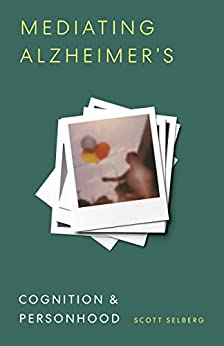
English | 2022 | ISBN: 1517902282 | 372 pages | True PDF | 20.26 MB
An exploration of the representational culture of Alzheimer's disease and how media technologies shape our ideas of cognition and aging



